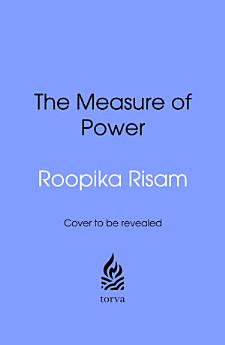Data Empire: A Human History of Records and Rule
Roopika Risam
Jul 2026 · Random House
Ebook
368
Pages
family_home
Eligible
info
infoThis book will become available on July 9, 2026. You will not be charged until it is released.
About this ebook
From clay tablets to the algorithmic state, a groundbreaking new lens on human history arguing that information has always been the seed of power. Perfect for readers of Nexus and The Age of Surveillance Capitalism.
Historians have pointed to guns, germs, steel, religion, agriculture, and the female body as the engines of human history. But what do they all have in common?
Every human approach to power has involved collecting data—from tracking where and how long animals live to sharpen the hunt, to classifying our fellow humans in order to stratify, isolate, and subjugate them. Recording and mastering data has always been the foundation of rule—and we are living through it now, too.
In Data Empire, Roopika Risam uncovers the hidden history of data as a force that has shaped civilizations. From ancient cave markings and knotted strings to colonial censuses and modern digital surveillance, Risam shows how data has always been a means of control. Empire may have made use of weapons or ships, but it was built on information.
Both a sweeping history and a sharp critique, Data Empire is a call to recognize the power data has always held, and to imagine what resistance looks like in an age defined by it. The story of empire is the story of data—and knowing its past is the first step to breaking its grip on the future.
Historians have pointed to guns, germs, steel, religion, agriculture, and the female body as the engines of human history. But what do they all have in common?
Every human approach to power has involved collecting data—from tracking where and how long animals live to sharpen the hunt, to classifying our fellow humans in order to stratify, isolate, and subjugate them. Recording and mastering data has always been the foundation of rule—and we are living through it now, too.
In Data Empire, Roopika Risam uncovers the hidden history of data as a force that has shaped civilizations. From ancient cave markings and knotted strings to colonial censuses and modern digital surveillance, Risam shows how data has always been a means of control. Empire may have made use of weapons or ships, but it was built on information.
Both a sweeping history and a sharp critique, Data Empire is a call to recognize the power data has always held, and to imagine what resistance looks like in an age defined by it. The story of empire is the story of data—and knowing its past is the first step to breaking its grip on the future.
About the author
Roopika Risam is Associate Professor of Digital Humanities and Social Engagement at Dartmouth. Her research explores how histories of race, empire, and technology shape the modern world. She is the author of New Digital Worlds: Postcolonial Digital Humanities in Theory, Praxis, and Pedagogy, taught in over 150 universities worldwide, and co-editor of four collections, including Anti-Racist Community Engagement and The Digital Black Atlantic. Risam is past president of the Association for Computers and the Humanities, the U.S. scholarly organization for digital research in the humanities.
Reading information
Smartphones and tablets
Install the Google Play Books app for Android and iPad/iPhone. It syncs automatically with your account and allows you to read online or offline wherever you are.
Laptops and computers
You can listen to audiobooks purchased on Google Play using your computer's web browser.
eReaders and other devices
To read on e-ink devices like Kobo eReaders, you'll need to download a file and transfer it to your device. Follow the detailed Help Center instructions to transfer the files to supported eReaders.




